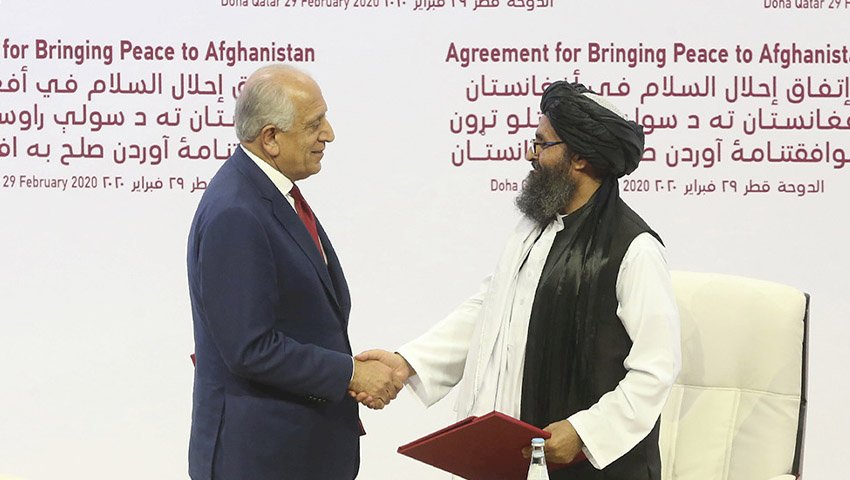Is the Trump administration’s proposed May 2021 departure from Afghanistan realistic? Former Swedish PM Carl Bildt examines the ‘forever war’ in Afghanistan.
To continue reading the rest of this article, please log in.
Create free account to get unlimited news articles and more!
We need to establish an achievable plan on the future of Afghani statehood before the departure of coalition troops, and this plan must be agreed to and supported by the country’s regional neighbours.
This is the opinion of Carl Bildt, former Swedish prime minister and foreign minister writing for Project Syndicate last week and featuring in ASPI's The Strategist ahead of the potential US departure from Afghanistan.
Pointing to Afghanistan’s fractious history, from Britain and Russia’s ‘Great Game’ in central Asia through to the numerous pre- and post-Soviet civil wars that tore the country apart, Bildt outlines that a premature US departure from Afghanistan will stoke the nation’s underlying political and religious divisions.
What are US’ next steps?
On 14 February, the 32nd anniversary of the Soviet Union’s exodus from Afghanistan, President Ashraf Ghani outlined in a speech in Kabul that the 1992 Afghan Civil War was motivated by a lack of consensus among Afghanis about what a post-Soviet Afghanistan should look like.
The division following the withdrawal of Soviet forces allowed the Taliban to make a number of territorial gains against the government of president Mohammad Najibullah, before taking Kabul and then the entire country in 1996.
The Taliban established and ruled the Islamic Emirate of Afghanistan from 1996 until 2001.
In February 2020, the Trump administration reached a deal with the Taliban to put an end to the 19-year conflict and remove all coalition troops by May 2021, provided that the Taliban met several assurances such as the removal of ties with terror organisations and meeting with the Afghani government.
Bildt notes that the Taliban has yet to meet these assurances.
In fact, he notes that US watchdog the Special Inspector General for Afghanistan Reconstruction (SIGAR) reported that the US military received more “enemy initiated attacks” in the last quarter of 2020 than in 2019 despite the agreements.
As such, the new Biden administration has declared that it will review whether or not the Taliban has kept its end of the bargain before removing coalition troops from the country. Bildt believes at this current time that the US is likely leaning toward keeping a military presence in the country – which he notes that German Foreign Minister Heiko Maas has supported.
We must learn from the mistakes of history
Afghanistan sits on the doorstep of regional and global super powers, and straddles age old religious, political and tribal tensions that don’t recognise national borders.
This is why Afghanistan’s neighbours need to be engaged in the dialogue surrounding Afghanistan’s future, including Russia, China and Iran – with consideration given to how changes in the Afghani government will impact on Pakistani-Indian relations.
Despite the West’s recent vicissitudes regarding their relationships within Afghanistan, Bildt remains steadfast that the coalition must not withdraw until there is a clear and firm vision about what a post-US Afghanistan looks like.
[Related: Has Biden shifted attitudes in the Middle East?]
Liam Garman
Editor – Defence and Security, Momentum Media

 Login
Login








